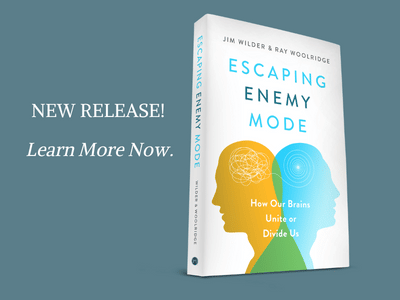What do you think about when you think about food?
The rich taste? The enchanting smells? The fresh ingredients?
What you might not think about is how attached you feel to your food.
Food creates a bond between the eater and the feeder.
This can be seen when babies or animals are fed. They relate the sensations and sustenance with the one who feeds them. If the feeder is unavailable emotionally the process is short circuited.
The result is that the eater becomes attached to the food instead of the feeder. The bond of joyfulness and appreciation that should be given to a person is given to a temporary, and often unhealthy, experience. We know this instinctively, as is seen in the term “comfort food.”
This bad eating habit is an ancient problem that is reflected in the scriptures.
One way to understand the original sin of Adam and Eve is that they chose the food over the feeder. This provides a helpful way of thinking about many of the problems we encounter as individuals and as a culture. Often, we can’t shed pounds, no matter how hard we try. As of 2014, 2/3 of Americans are obese.
Although there are many reasons for this problem, we need to recognize the psychological culprit that is making us fat: We have become bonded to our food.
By misplacing our sense of attachment, we miss the natural function of food. Food should foster a sense of attachment to the feeder. In other words, food helps us love and appreciate God.
How would your relationship to food change if you took the following 5 steps:
1. Start with appreciation
Think specifically about how it smells, tastes and makes you feel. Be reminded of how many don’t get great food like this. Prayerfully tell God how gratefully you for your food.
2. Confess to God that you need help
Admit your tendency to care more about the food than the feeder. Ask for help to enjoy the meal, and remember it is from him.
3. Ask God for help recognizing His presence during the meal
Jesus is called “Immanuel,” which means “God with us.” Ask for help recognizing his presence as you eat.Confess to God that you need help. Admit your tendency to care more about the food than the feeder. Ask for help to enjoy the meal, and remember it is from him.
4. Don’t eat alone
Sharing a meal provides great accountability, because another person will know what you eat. More importantly, it provides a special moment to build a bond with another person instead of the food.
5. Take your time
Meals are a chance to grow in appreciation of God’s provision, deepen bonds with others and receive the sustenance you need. This cannot be rushed. Settle in and enjoy the moment. Over time, your relationships to God and others will fill you in a way comfort food never will!
Choosing healthy foods and counting calories can be helpful, but they do nothing to address the heart that lies behind many bad eating habits. Both scripture and modern attachment theory help us to understand that the problem is our dangerous attachment to food. Bond with God instead, and you’ll take an important step to developing a new, healthy relationship with food.









